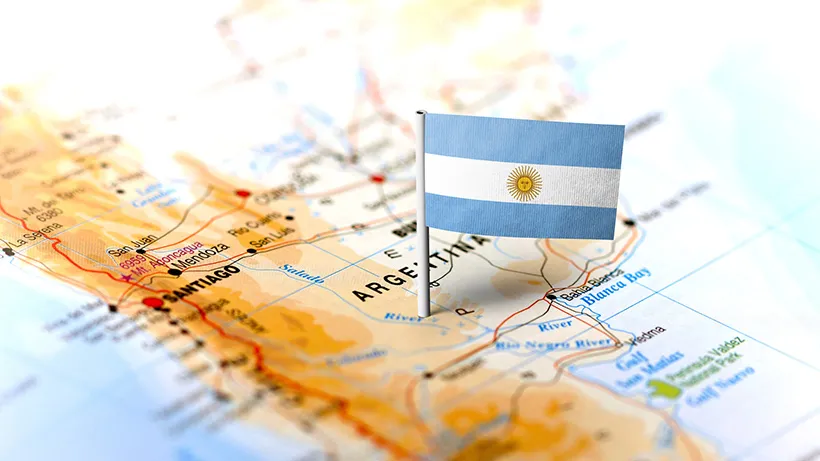Nearly everyone is now excited about Argentina

Energy and telecommunications sector companies in particular are attracted to the country.
Having overcome its debt problems, Argentina has aroused interest among more and more export companies. For a long time, the country was out of range for Western financiers but now it attracts, above all, energy and telecommunications sector companies.
- Argentina’s new Government is pro-business, and it seems that the country’s foremost companies are able to obtain money from the bond markets at a competitive price. This has created a situation where nearly everyone is enthusiastic about Argentina, says Mika Relander, Senior Adviser responsible for Latin America at Finnvera.
According to him, there are many investment needs. Apart from the energy and telecommunications sectors, there is demand for developing infrastructure and for the mining and wood processing industries.
- Argentina’s economy is also advanced enough to attract Finnish companies engaged in the exports of services and education, Relander says.
Basic structures in place
Relander believes that positive developments will continue in Argentina even if the political risk is high.
- The economy was weak for a long time because of unpaid debts, but recovery has been surprisingly quick. It’s good to remember that Argentina was one of the world’s richest countries until the 1950s. The level of education continues to be the best in Latin America, and the institutional basic structures still exist. Compared against many other countries, such as Iran, Argentina may be a more approachable new market area, says Relander.
In the wake of the debt restructuring agreement concluded by international creditors in the Paris Club, Argentina’s country risk category rose from the weakest category to 6/7.
- At present, Argentina has little public debt because it was not eligible for debt before. It’s now relatively easy for the country to get credit. The resulting concern is that important reforms aimed at restructuring the economy will be postponed and positive development is delayed, Relander ponders.
He believes that many financiers are still cautious and are waiting to see how the country’s political development will continue after the next elections. The presidential and parliamentary elections, important for the future direction of Argentina, will be held in 2019.
- Financiers have a long memory and most remember the old problems that arose when borrowers did not meet their payments. However, Argentina is a good example of how democracy sooner or later corrects itself.
An explosion of orders
The opening of the markets has also kept Wärtsilä, a supplier of power plants, busy in Argentina.
Tuomas Haapakoski, Director, Financial Services at Wärtsilä, says that the company’s order book multiplied in Argentina following the opening of the country’s markets.
- We made the decision to be present in Argentina many years ago and we have had a subsidiary there since 1997. At present, our power plant solutions are really in great demand, says Tuomas Haapakoski, Director, Financial Services at Wärtsilä.
Last year, Wärtsilä won seven orders for power plants in Argentina. The combined output of the plants is over 500 megawatts, and the orders will multiply Argentina’s power plant capacity in one go. This also opens up possibilities for growth in maintenance services.
- The orders are connected to management of the country’s acute energy crisis, where the government strives to cover the capacity deficit accumulated over the years and to curb the rising costs of power production. The power plants to be delivered now will be built to a fast timetable and will serve primarily as first aid. The opportunities in this sector will certainly rise, says Haapakoski.
According to him, the situation in Argentina has quickly turned positive for foreign actors.
- For example, currency regulation has been relaxed and energy policy has been developed in a direction that encourages investments. On the financial markets, Argentina has been able to break the isolation that continued for years, and the country is currently working with reasonable openness, Haapakoski says.
FACT: Argentina
- Finnvera’s country risk category for Argentina is 6/7.
- Gross domestic product: About EUR 402 billion (2015). Finland’s gross domestic product is EUR 207 billion (2015)
- Gross domestic product per capita: EUR 9,653 (2015). Finland's gross domestic product per capita is EUR 37,827 (2015).
- Economic growth: 2.1% (2015).
- Inflation: 26.9% (2015).
- Exports: EUR 52.2 billion (2015).
- Imports: EUR 55 billion (2015). The total value of Finnish exports to Argentina in 2015 was about EUR 15 million.
- Principal sectors: Industry, services and agriculture. Argentina’s main export products are soybeans, oil, gas, and vehicles.
- Currency the Argentine Peso: The exchange rate is EUR 1 to ARS 16.0.
More information about Finnvera’s export credit guarantees is available here.
Sources: Ministry for Foreign Affairs, Focus Economics, Finnish Customs
